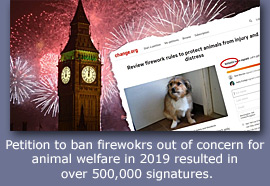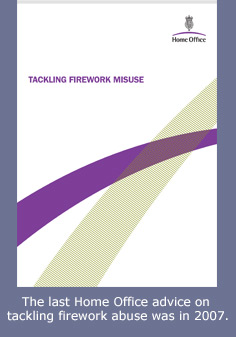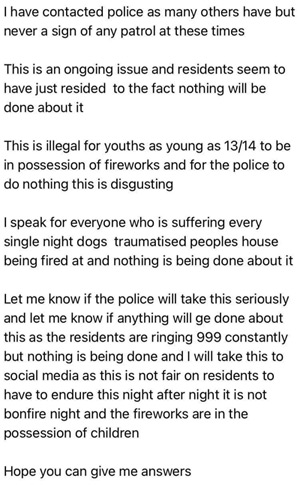Many people may ask, what is this new item doing on a health and safety website, and what do animals have to do with health and safety of humans?
Well, the simple answer is that the health and safety of the wider community in which we live , is often an area of concern to many safety reps who are active in their communities, and especially if it relates to anti-social behaviour and the welfare of our pets.
Many postal and telecomm workers are subject to dangerous dogs attacks every day, what makes a dog act in such a way is often neglected and it is assumed because of a bad owner.
It is certainly true say animal behavioural specialists that dogs reflect their owner’s emotions to a great extent. If the owner is antisocial or aggressive in behaviour, the dog is going to mimic him to make the owner happier. It follows that aggressive behaviours by the owners often make the pets fearful, quiet and shy. As it does in children too. Both dogs and children, may then show frustration and anger to others as a reaction to the behaviour they have experienced at home.
 However, whilst this may well be true in many cases, it is folly to neglect the affects of human behaviour both inside and outside the home of the owner and people around them, on their pet dogs and other animals.
However, whilst this may well be true in many cases, it is folly to neglect the affects of human behaviour both inside and outside the home of the owner and people around them, on their pet dogs and other animals.
Stress in dogs can lead to bad behaviour just as it can in humans, and with dogs in particular the affect of exposure to fireworks, can eventually lead to behavioural problems, which in extreme cases lead to such a dog becoming dangerous to strangers and anyone entering it's home territory.
When it comes to human beings such misuse of fireworks being thrown at people, set-off outside of the festive season or that of Bonfire Night, can cause injury, stress and is one of the most often reported anti-social complaints made to police and local authorities. If it is a regular occurrence it can become quite debilitating.
Dogs and other household pets can suffer too and the stress caused can be just as devastating to them.
Unionsafety, back in 2020 featured an article on the issue:
One of the greatest risk to animal and pet welfare is the use of fireworks during the months of November December and January specifically as they are used en-masse.
Stress is a killer, and not just of human beings, but of animals too!
It is estimated that 45% of dogs show signs of fear and anxiety when they hear fireworks. Not just dogs but all animals have very acute hearing and with loud bangs & whistles it can cause them a lot of stress and pain.
 Some of the signs that your pet is scared or stresses out by the fireworks include:
Some of the signs that your pet is scared or stresses out by the fireworks include:
* Salivating and drooling
* Whinning and whimpering
* Barking and howling
* Not eating
* Trembling and shaking
* Seeking more attention than normal
* Scratching to escape from a room or the area they are in
* Hiding in the corner or under a furniture
* House soiling
Lots of pets can suffer from anxiety and stress, they can be especially upset when fireworks are being used. However, there are lots of things that you can do to help them cope better and even overcome their anxiety.
If you’re interested in fireworks safety for pets, here are a few tips:
* Always keep dogs and cats inside when fireworks are being let off.
* Make sure they have somewhere to hide if they want to. For example make them a den with a towel over a table.
* Walk your dog during the day to avoid taking them out at night when there might be fireworks.
* Close all windows and doors, and block off cat flaps to stop pets escaping. This will also help keep the noise out.
* Draw the curtains to block out the flashing lights.
* Turn on the TV or radio, (but not too loudly) in order to block out some of the noise of the fireworks.
*Make sure your pet is micro-chipped.
Legislation exists, The Fireworks Regulations 2004, and the The Pyrotechnic Articles (Safety) Regulations 2015 which empowers authorities and the police to take action.
The latter piece of legislation means simply that it is an offence to sell fireworks outside of the following age and type of fireworks group:
(a)for a Christmas cracker, 12 years;
(b)for a category F1 firework other than a Christmas cracker, 16 years;
(c)for a category F2 firework or a category F3 firework, 18 years;
(d)for a category T1 theatrical pyrotechnic article, 18 years;
(e)for a category P1 other pyrotechnic article, 18 years.
Such incidents should be reported to your local trading standards office.
 But when it comes to antisocial behaviour involving fireworks, often the police refer reports to the local council authority to chase up, depending of course where you live.
But when it comes to antisocial behaviour involving fireworks, often the police refer reports to the local council authority to chase up, depending of course where you live.
In the North West some police constabularies may have priority guidelines of their own which limits the action they will take with regard to anti-social behaviour. It seems that Merseyside Police may well be following a policy of referring people to the local council.
Cases of abuse with fireworks by youths and other anti-social behaviours reports to police have been met with referral to the council, and yet others are actioned. There does not seem to be consistency of approach and use of the legislation by the police.
Certainly one reader of this website has reported repeatedly the fact that youths on a nightly basis in her neighbourhood subject her and other families in her road to a torrent of firework explosions which cause her dogs to suffer fright and anxiety every time they hear the bangs from the fireworks as well as making her family's lives miserable.
She has since written to her MP Maria Eagle complaining that nothing been done despite her numerous complaints to the police, and asking her why they still have not taken any action:
"Let me know if the police will take this seriously" she asks.
To date, she has not yet received a response to her letter.
Following turning to social media, the local newspaper has contacted her over the problem, which affects so many neighbourhoods every year.
Antisocial behaviour is not only detrimental to the health of people, but is also an unacknowledged cause of bad behaviour in domestic animals and pets.
Source: Gov UK / Metro / Unionsafety